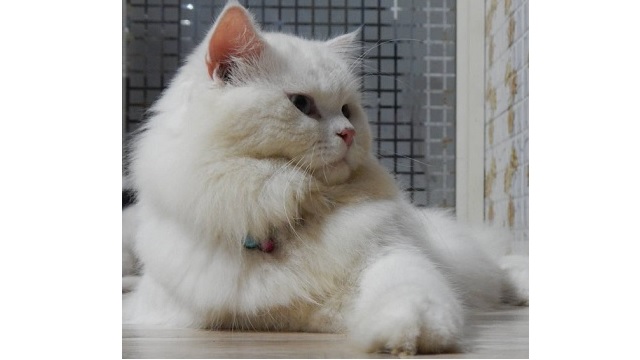Health benefits of keeping a cat as pet
ats are beneficial to physical and mental health and can also be a source of emotional support for their owners.
Cats are not always at the top of the list while picking out pets, probably owing to their reputation for being aloof, finicky, and not as loving as their canine counterparts. However any cat parent can tell you that these stereotypes are not necessarily true. One study, for instance, found that cats and their owners share a truly deep, mutually advantageous bond and that bond is especially intense between women and their cats.
Scientifically proven health benefits of having a cat
Owning a cat can be very rewarding. In fact, according to studies, watching cat videos is enough to boost your energy. They can be affectionate, and a simple purring or curling next to you can create positive emotions and calming effects. There certainly are psychological benefits of owning a cat.
Cats are beneficial to physical and mental health and can also be a source of emotional support for their owners.
While your feline friends may not be nice to your furniture, they can be a great companion and make lives happier and healthier.
Here are some health benefits of having pet cats.
Lowers stress and anxiety
Having a cat around you can actually trigger the release of calming chemicals in your body which lower your stress and anxiety leves. Cats are known for being super low-maintenance and a simple petting session is usually enough to make both you and your cat happy. This is one of the best health benefits of having a pet cat.
In one study, researchers visited 120 married couples in their homes to observe how they would respond to stress—and whether cats were any help. Hooked up to heart rate and blood pressure monitors, people were put through a gauntlet of daunting tasks: subtracting three repeatedly from a four-digit number, and then holding their hand in ice water (below 40 degrees Fahrenheit) for two minutes. People either sat in a room alone, with their pet roaming around, with their spouse (who could offer moral support), or both.
Before the stressful tasks began, the cat owners had a lower resting heart rate and blood pressure than people who didn’t own any pets. And during the tasks, the cat owners also fared better: They were more likely to feel challenged than threatened, their heart rate and blood pressure were lower, and they even made fewer math errors. Out of all the various scenarios, cat owners looked the calmest and made the fewest errors when their cat was present. In general, cat owners also recovered faster physiologically.
Cat purr helps heal bones, muscles, and tendons
A cat purring is one of the most comforting sounds in the world and while it certainly means your cat is happy and comfortable, the sound has also been long associated with a therapeutic healing ability on human bones and muscle.
A cats purr creates vibrations at a frequency of 20-140 HZ, and studies have shown that frequencies in the 18-35 HZ range have a positive effect on joint mobility after injury, scientists have begun talking about how the cat noise could help humans.
Cats help heart health
Owning any pet is good for your heart. Cats in particular lower your stress level—possibly since they don’t require as much effort as dogs—and lower the amount of anxiety in your life. Petting a cat has a positive calming effect. One study found that over a 10-year period cat owners were 30 percent less likely to die of a heart attack or stroke than non-cat owners (although this might just be because cat owners are more relaxed and have lower stress in general).
Helps lower blood pressure
Apart from being soothing for hurt bones, muscles, and tendons, cat purrs have also been associates with lowering blood pressure as they are very calming.
Researchers at the University of Buffalo tracked a group of 48 hypertensive New York stockbrokers who were all prescribed an ACE inhibitor to manage their high blood pressure. Half of the group was also asked to add a dog or cat to their treatment regimen. During a subsequent stress test, the pet owners’ heart rates and blood pressure levels increased much less than those participants solely taking the ACE inhibitor medication.




 Ms Kalinga
Ms Kalinga
A motivated article. Cat hair are responsible for some serious diseases, even affecting foetus n causing hydrocaphalus among others